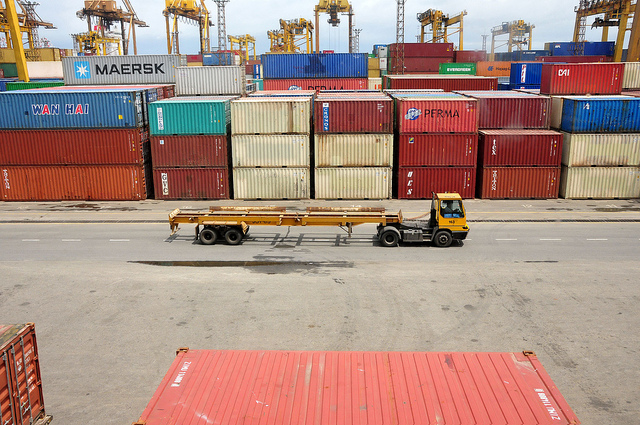Mounting Illicit Financial Outflows from South

KUALA LUMPUR, Oct 31 (IPS) - Although quite selective, targeted, edited and carefully managed, last year's Panama Papers highlighted some problems associated with illicit financial flows, such as tax evasion and avoidance. The latest Global Financial Integrity (GFI) report shows that illicit financial outflows (IFFs) from developing countries, already at alarming levels, continue to grow rapidly.
Illicit financial flows growing rapidly With international financial liberalization enabling investments abroad, ‘legitimate outflows' have also been growing rapidly, heightening macro-financial risks to countries. Many of today's financial centres compete intensely to attract customers by offering lower tax rates and banking secrecy.
It is generally presumed that IFFs are related to tax evasion and corruption. Such financial flows largely involve financial service providers, law offices and companies with transnational activities, often involving investments in real estate and other assets worth billions. Besides enabling governments and legislation, legal and accounting firms as well as shell companies have been crucial.
The GFI report estimates that developing countries lost somewhere between $620 billion (bn) and $970 bn in illicit outflows in 2014. The Washington-based think tank found IFFs from the South to be 4.2-6.6% of total developing country trade for 2014, while inflows were 9.5-17.4%. Total IFFs of all developing countries in 2014 were estimated at $2,010-3,507 bn.

During 2005-2014, IFFs from the South were 4.6-7.2% of developing countries' total trade, while such inflows were 9.5-16.8%. GFI attributes about 3.3% of IFFs over this period to fraudulent trade mis-invoicing or ‘transfer pricing'.
China, Russia, Mexico, India and Malaysia lead all countries in illicit capital flight. Since 2012, emerging and developing countries have lost over a trillion dollars yearly that could invested productively in industry, agriculture, healthcare, education, or infrastructure. Methodological doubts GFI estimates have been criticized, e.g., for making unrealistic assumptions about trade-related transport costs and ignoring other explanations for ‘errors'. For instance, estimated GFI outflows include IFFs and trade mis-invoicing estimated from inconsistencies in trade data.
For GFI, ‘leakages' (errors and omissions) in the balance of payments (BoP) are a type of IFFs. It assumes that all unreported leakages in inflows and outflows of a country are illicit. While long associated with capital flight, such BoP leakages may include legitimate reporting errors, as the report recognizes. But as such leakages only account for a small fraction of total IFFs estimated by GFI, they are not likely to appreciably affect overall estimates.
Criminal activities IFFs in developing countries may also be due to transnational criminal activities, which GFI estimates globally for 2014 as follows: counterfeiting ($923-1,130 bn), drug trafficking ($426-652 bn), illegal logging, ($52-157 bn), human trafficking ($150.2 bn), illegal mining ($12-48 bn), illegal fishing ($15.5-36.4 bn), illegal wildlife trade ($5-23 bn), crude oil theft ($5.2-11.9 bn), small arms and light weapons trafficking ($1.7-3.5 bn), organ trafficking ($840m-1.7 bn), trafficking in cultural property ($1.2-1.6 bn), totalling $1.6-2.2 trillion.
‘Legitimate outflows' have also increased rapidly in recent years. Besides the decades-old promotion of tax exemption for ‘free trade' or export-processing zones, some emerging market economies have recently promoted and enabled outward foreign direct and portfolio investments.
Such capital outflows are said to balance portfolio investment inflows increasing foreign ownership of emerging market economies' corporate sectors. But such ‘balancing' provides no protection in the event of financial panic and a rush to exit. The push for ever greater financial liberalization thus exposes them to greater fragility and vulnerability.
Participating in such a ‘race to the bottom' by offering tax loopholes typically involves making ever more concessions to the rich and powerful. Rich countries have been quite selective in administering anti-bribery rules, and rarely take effective action, e.g., to prevent anonymous companies being abused, as highlighted by last year's Panama Papers revelations.
International cooperation needed The nature and scale of illicit flows mean that international cooperation is urgently needed. While progress has been slow at the United Nations, the cooperation of the International Monetary Fund and other multilateral institutions will be vital for progress. If not, rich countries will continue to ‘call the shots' through the OECD ‘rich country club', which has been dominant on international tax matters.
Peak national authorities should work closely with different bodies like the central bank, tax revenue authorities, customs authorities and police to enhance tax collection, increase government transparency, improve natural resource control by government, and enable public scrutiny of revenues and other public accounts.
Such efforts will require more evidence and modes of investigation, as well as the cooperation of all relevant parties. Ultimately, political will, especially to take on powerful vested interests, will make the difference.
Further international financial integration after the 1997-1998 Asian financial crises and the 2007-2009 global financial crisis has resulted not only in fast growing financial outflows from the South, but also in greater vulnerability to new sources of volatility and instability.
© Inter Press Service (2017) — All Rights Reserved. Original source: Inter Press Service
Where next?
Browse related news topics:
Read the latest news stories:
- Global Disability Summit Galvanizes Education Support for Crisis-Impacted Children with Disabilities Thursday, April 03, 2025
- World Autism Awareness Day 2025: Sustainable Development Must Include Neurodivergent Perspectives Thursday, April 03, 2025
- Solar-Powered Spinning Machines Help Indian Women Save Time and Earn More Thursday, April 03, 2025
- DR Congo: Millions Facing Destitution as Violence Forces People to Flee Multiple Times Thursday, April 03, 2025
- DR Congo: Armed violence displaces thousands as cholera outbreak worsens Thursday, April 03, 2025
- World News in Brief: Israeli military escalation in Syria, Nicaragua rights probe, South Sudan talks Thursday, April 03, 2025
- Gaza: UN rights chief calls for probe into killings of medical workers Thursday, April 03, 2025
- UN envoy urges international support for West Africa and the Sahel Thursday, April 03, 2025
- Myanmar: UN chief calls for urgent access as quake toll mounts Thursday, April 03, 2025
- AI’s $4.8 trillion future: UN warns of widening digital divide without urgent action Thursday, April 03, 2025